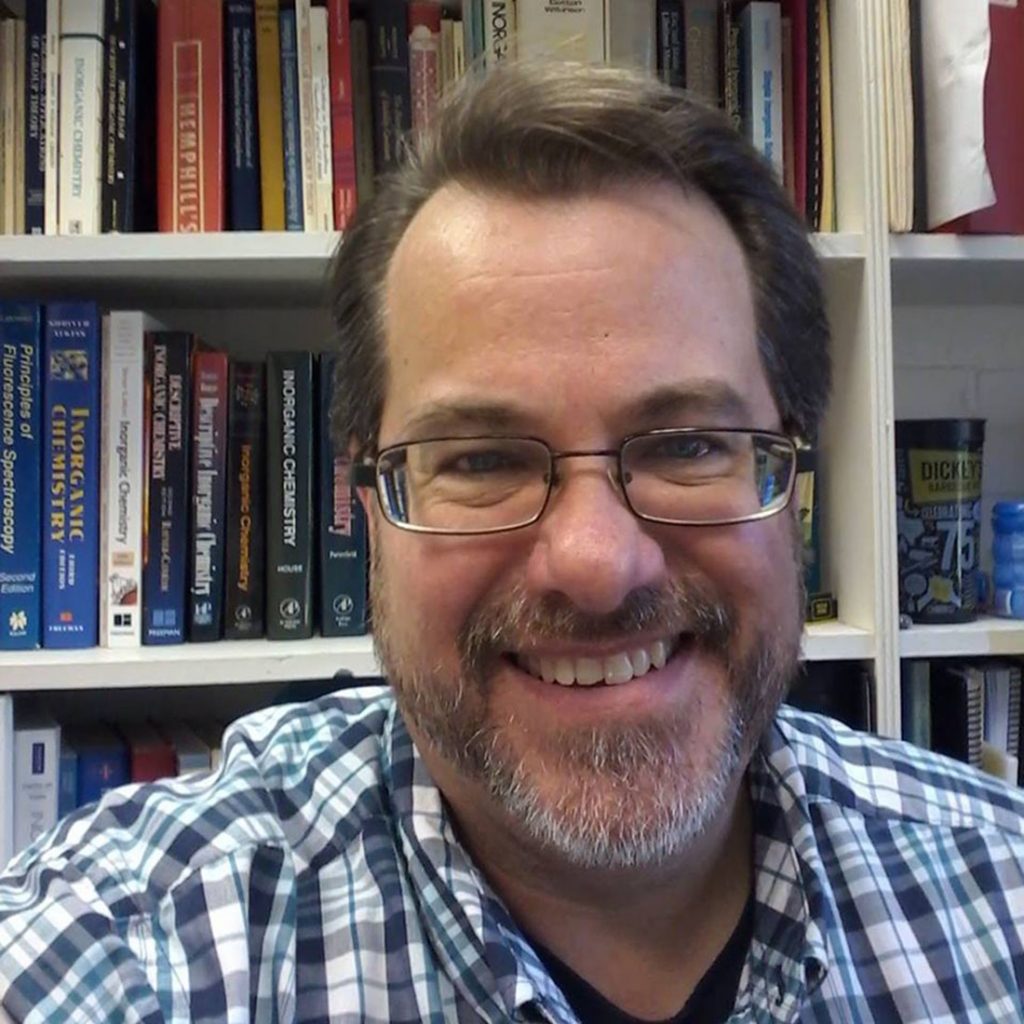CHEM 1105 - General Chemistry I
Course Description
This course is the first semester of General Chemistry and will serve as an introduction to fundamental chemical principles.
Topics to be covered include
- Composition of Matter,
- Calculations and Dimensional Analysis,
- Chemical Nomenclature,
- Solution Chemistry,
- Thermochemistry,
- Gases,
- Atomic Structure,
- Basic Bonding, and
- Molecular Geometry.
Course Information
Textbook: Chemistry: The Central Science
Brown, LeMay, and Bursten, 10th edition, Prentice Hall Pub., 2006.
Calculator: A scientific calculator is required. An inexpensive scientific calculator with scientific notation, square root, trigonometric, exponential, and logarithmic functions can be purchased for less than $20, and will be sufficient for the needs of this course.
Your Instructor

Bill BareAssociate Professor of Chemistry
B.S., Chemistry, Florida State University; Ph.D., University of Virginia
I began teaching at Randolph College thinking that I would only be here a year. But when the opportunity arose to make the temporary position permanent, it wasn’t hard to make a decision. Randolph is a completely different world than I was accustomed to from my educational background at large state universities, and I really liked the personal feel of the college. The red brick campus began to feel like home almost immediately.
Environmental chemistry is my favorite course to teach because it brings together all of the material learned in introductory courses and places it in the context of important national and global issues. Smog, ozone depletion, greenhouse gas emissions, global warming, alternative fuels, and ground water contamination are all issues of tremendous current importance, and are also all issues that cannot be understood without understanding the chemistry of the species and processes involved. Although many of these issues represent great concerns, they also provide great opportunities for future creative chemists to make meaningful improvements to people’s lives.